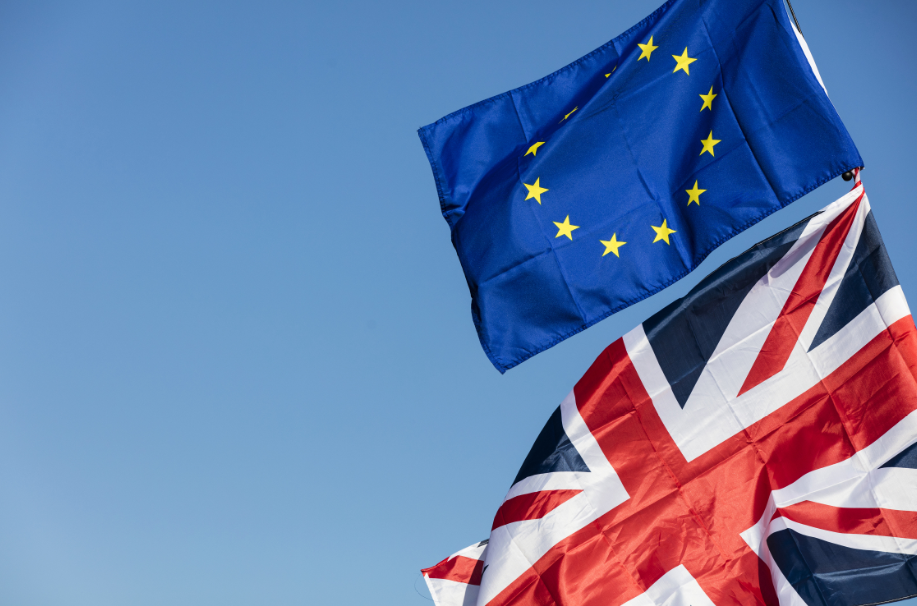
More than half of UK firms are targeting trade with the continent in spite of new post-Brexit rules, a new survey has found.
The survey by HMRC, which was reported in today’s City AM, found that 53% of companies are looking to expand in the EU. The key drivers are existing trading relationships, proximity and the 450m customers in the market.
UK firms are also looking to expand into markets in north America (37%), South East Asia (35%), and the Middle East and North Africa (34%), the ‘Going Global for Growth’ study also found.
Prioritising trade
Cora McLaren, managing director and head of international subsidiary banking at HSBC UK, said businesses are adapting to challenging times “by embracing greater international diversification”.
“Our research shows how UK businesses are prioritising international trade as integral to their growth,” she added.
However, 48% of businesses see geopolitical risks, such as the war in Ukraine, as an obstacle to exports. Almost two fifths of those considering international expansion were put off by the costs, while 30% had concerns over labour shortages, supply chain problems and logistical issues.
Exports down
The latest ONS figures for exports show that total exports of goods, excluding precious metals, decreased by £1.6bn (4.7%) in September, with exports to EU countries falling by £0.9bn (5.1%) and exports to non-EU countries decreasing by £0.7bn (4.2%).
A decrease in exports of machinery and transport equipment and a £0.3bn fall in fuel exports was behind the decline in exports to the EU. The fall in exports to non-EU countries was driven by a £0.7bn decrease in exports of machinery and transport equipment and a £0.6bn fall in fuel exports.
Firms struggling
The Guardian reports the dilemma of British cheese trader, the Cheshire Cheese Company, which has sold out to a rival in order to keep trading with Europe after post-Brexit changes made exporting to the EU unviable overnight.
Managing director Simon Spurrell said the deal with Joseph Heler Cheese would allow his products to be sold in Europe again after an absence of two years. He lamented what he saw as the government’s inability to get better access to the UK’s biggest market.
Export-led recovery
Despite issues such as those faced by Spurrell’s company, IOE&IT director general Marco Forgione has called on government to put trade at the centre of the UK’s recovery.
To support this the IOE&IT has launched a new ‘Exporting Starter Pack Voucher’ scheme, which will provide £2,500 worth of free training through a series of six webinars.
Forgione said:
“With the launch of this new scheme we continue our commitment to support growth and this series of webinars will equip businesses with the tools they need to trade compliantly and effectively with the world. I would encourage all UK-based businesses to take advantage of this offer and register for this series and learn from our experts.”
The IOE&IT also provides training to companies looking to expand into the EU market on its ‘Trading with the EU’ course, which covers new rules for trade with the EU under the UK-EU Trade and Cooperation Agreement and new customs declarations requirements.
Inflation soars
Food prices in the UK are rising at their highest rate for 45 years as food price inflation hit 16.2% in October driven by milk and cheese prices, reports the BBC.
Low-fat milk has risen by 48% since last October, and cheese costs 27% more than a year ago.
Across the board price rises has seen pasta prices jump by 34%, bread up 14.4%, fish up almost 16% more, and eggs are up 22%.
Simplify regulation
The Food and Drink Federation has called on the government to cut the cost of trading with the European Union, to help bring down food inflation. Chief Executive Karen Betts told the Guardian that trade problems are contributing to the soaring prices that are impacting low-income households in particular.
“Government could help ease these pressures by reducing the costs of doing business, for example through simplifying regulation, reducing the cost of trade with the EU, and helping companies to invest in growth, innovation and skills through tax incentives,” she said.



